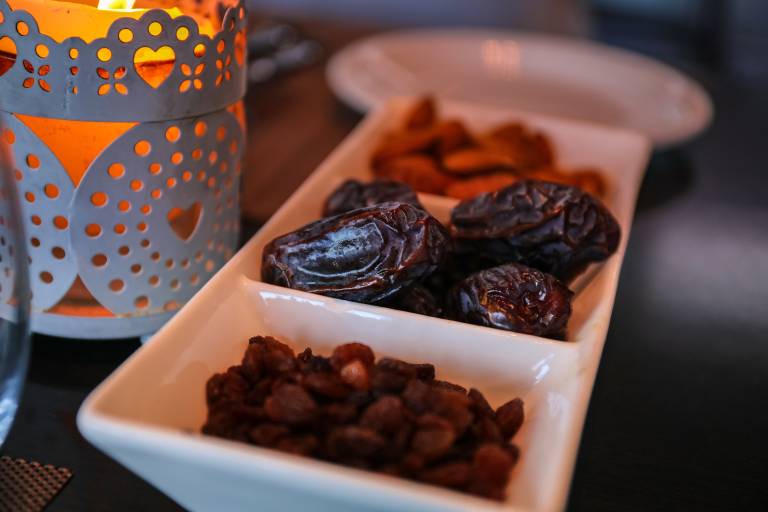Seven tips for students observing Ramadan
1 March 2024
During the holy month of Ramadan there are ways to maintain your energy and focus. UCL Chaplain and Interfaith Adviser Reid Humble gives a few tips to achieving this.

This year, Ramadan – the Islamic holy month – starts from around 11 March until the last day of Ramadan, Eid al-Fitr around 9 April. This marks the time of the revelation of the Qur'an.
For Muslims, Ramadan is the holiest month of the year as it is when the Qur’an was revealed to the Prophet Muhammad. Ramadan is a time for reflection, where Muslims refrain from eating and drinking during daylight hours, and focus on prayer, purification and charitable acts.
During Ramadan, Muslims around the world fast during daylight hours and increase in their spiritual devotional acts such as prayer and giving to charity.
However you decide to observe Ramadan this year, we hope that you can maintain the essence of Ramadan at UCL. During this period we understand that it may be a little harder than usual for you to concentrate. This year Ramadan occurs during a key time in preparing for examinations which may add to the challenges you face.
In response to this we have put together some tips to help you best maintain your energy levels.
Plan
Plan your timetable as far in advance as possible, so you can schedule organising your relevant coursework, revision, rest, daily exercise, prayer and meals in the most efficient way possible. By planning in advance, you will know how you best revise and organise your work early on, which should help you organise your time effectively.
Rest
Ensure you are as well rested as possible. Although fasting can make you feel lethargic, getting as much sleep as possible will help you manage this.
Suhur (pre-dawn meal) choices
Try to make good food choices when eating a suhur (pre-dawn meal). We recommend you eat slow energy release food such as grains, oats, beans, and protein, as well as maximising your fluid intake. Staying hydrated is vital to your health, wellbeing and cognitive performance. If you experience headaches or drowsiness, this could be a sign of dehydration.
Exercise
Limit physical exertion. In general, stay indoors or in the shade and limit your physical activity. However, you may find it refreshing to get out for some fresh air and an easy walk. It is still good to have some light activity.
Evening meal options
When it comes to breaking fast, try to eat a balanced meal. Again, planning for this is important. This would be a meal that contains the proper proportions of carbohydrates, fats, proteins, vitamins, minerals and water necessary to maintain good health.
Ease lethargy
Refresh your wudu (ritual ablution) to help ease the feeling of lethargy.
Mental health and wellbeing
There is a wide and diverse range of opinions as to how to observe Ramadan. Be kind to yourself. Remember to take care of your mental health and wellbeing during this time.
If you are looking for further support, contact our Chaplaincy team as they would be very happy to speak to you.
We wish you a Ramadan Mubarak.
How UCL Student Support and Wellbeing can help
If you need counselling, support, or just advice before or during the period of Ramadan, make an appointment with one of our caring wellbeing advisers. If you are living in UCL accommodation, you can speak to your friendly Student Resident Adviser.
Reid Humble, UCL Chaplain and Interfaith Adviser
 Close
Close

